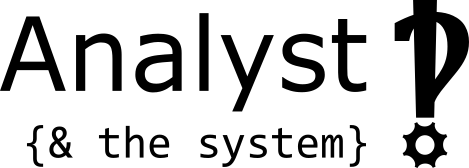Intellectual bravery for the public good

I believe that analysis is a powerful force for enabling good decisions about how the country is run, and I want to see analysis in the UK Civil Service do more cross-Department sharing, learning and discussion. One barrier I’ve experienced is the siloed and local nature of learning & knowledge in analytical circles, so Analyst {& the system} covers practical topics in analytics and related useful ideas from a perspective of their adoption and dissemination across Government.

I started my career as an academic in Physics through a Masters in single-photon detection and a PhD in Quantum Optics. This exposed me to a range of difficult ideas early in my career, and so I have experience in mathematical analysis, coding & algorithm design, data visualisation & interpretation, and various kinds of modelling. As a postdoctoral researcher, I realised that Academia left a lot to be desired as a career so moved over to the Civil Service’s Operational Research profession where I have enjoyed the relevance, pace, and cultural benefits that the CS offers. I’ve come to enjoy leading teams which cut across traditional boundaries to solve novel challenges and drive better decisions, and I see intellectual bravery & analytical leadership as my key qualities which the Civil Service needs. In 2024, I won the Analysis Function’s Rising Star award “for inspiring analysts across the analytical community”.


Q&A
Q: Why “Analyst {& the system}?
A: This blog is all about analytics in the context of Government and the public good. “the system” serves as a reminder that analysts exist within a wider system of Government and the public sphere, in which we help ensure that public leaders can make good decisions based on evidence. It also does double duty as a reminder to always bear in mind the systems that interact to create the issues/problems/challenges that decisions need to be made about – we don’t support a good decision if we isolate the analysis from the system it represents.
Q: Why this? Why now?
A: Professional analysts in Government do a remarkable job under a difficult combination of pressure and circumstance, but I feel we should strive to be the best we can be. A big barrier to this is that every analyst encounters a need for training & support that can be really hard to meet – especially when looking for professional development within the context of Government. So this blog aims to support analysts to pick up and apply new ideas.
Q: How does this fit in with your job?
A: I’m a professional operational researcher and leader in analytics in a major Government department, and as a Civil Servant it’s not appropriate for me to discuss things in public that relate to the work I’m currently doing or anything political. To satisfy this, I work with only public data and published information about Government structures and policies – and I don’t discuss the department I work for or the role I currently serve in.
Q: Why have you chosen $tool and $license?
A: I focus on trying to make things as easily adoptable as possible by other analysts in Government, but I also have a very minimal budget to work with for this blog. As such, I need to use mostly free / open source tools and I focus on ones that are widely adopted in Government already (such as R and Git). For licensing and copyright, I’ve chosen the weakest and most permissive licenses that ensure I still get credit for the work I do here. I chose to avoid copyleft because I think it would be likely to limit the uptake of anything I create within Government for legal reasons. Check out my Copyright page to learn more about licensing.
Q: You mentioned a government policy in a blog, does that mean you’re an expert?
A: I make no claim to be an expert in any particular area of Government policy, and in fact I think my particular talents are more related to analytical infrastructure, innovation and leadership than as a subject matter expert. I have to make the work on this site relevant to Government, so I choose appropriate fictional situations that relate to Government – these choices do not reflect real policies or advice I have given and are illustrative only.

